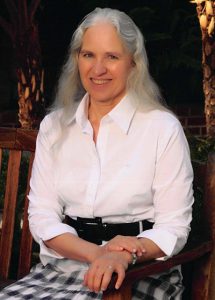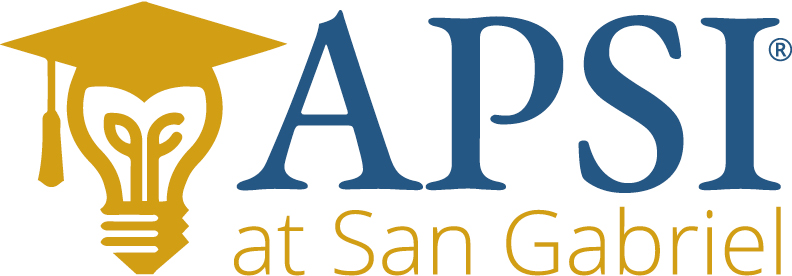Carol Pixton
 Carol Pixton taught history for 40 years, including 23 years at the Polytechnic School in Pasadena, CA where she was a member of the History Department. She started teaching AP European History in 1980. She was first appointed a Reader for AP European History in 1984 and she has continued to attend the Readings regularly. Over the years she has also served as a Table Leader and a Question Leader. She participated in both the 2016 and 2017 Readings of the Redesigned exam and will be at the 2018 Reading. She has consulted for the College Board since 1985, leading many workshops and institutes in the Western Region. She served from 2008 to 2012 on the College Board committee that developed the Redesigned AP European History Curriculum. She earned a Ph.D. in History at Columbia University in 2002.
Carol Pixton taught history for 40 years, including 23 years at the Polytechnic School in Pasadena, CA where she was a member of the History Department. She started teaching AP European History in 1980. She was first appointed a Reader for AP European History in 1984 and she has continued to attend the Readings regularly. Over the years she has also served as a Table Leader and a Question Leader. She participated in both the 2016 and 2017 Readings of the Redesigned exam and will be at the 2018 Reading. She has consulted for the College Board since 1985, leading many workshops and institutes in the Western Region. She served from 2008 to 2012 on the College Board committee that developed the Redesigned AP European History Curriculum. She earned a Ph.D. in History at Columbia University in 2002.
Course Description
This session offers an in-depth look at the content of the AP European History course and covers best practices for instruction, including a variety of methods AP teachers can use to create a lively and rich classroom experience. We will review the course framework, assessment tools and AP Classroom, as well as other online resources to support daily instruction. We will look at methods to teach students to respond to stimulus-based multiple-choice questions, and show how to access these questions from the AP Question Bank. Writing instruction will be a key element, including how to best prepare students for specific tasks on the AP exam, including the Document-Based Question and the Long Essay Question. Using examples from the 2020 Reading, participants will be able to go over how the rubrics are applied on specific essay questions.
Agenda
Day 1
Morning Session
- Welcome and Introductions Course basics: Scope of Course; Information on exam and Reading; AP Audit and AP Central
- *Introduction to NEW AP Resources and Processes that the College Board is launching in August, 2019. There will be required online sign-ups for all teachers and students.
- *OVERVIEWof therevised 2019 AP European History Course and Exam Description.
- Special attention will be paid to the nine Units, seven Themes (with added ‘Science and Technology)’ and revised Learning Objectives. Explore how to best apply revised skills in your instruction.
- Format of the exam and basics on scoring
- Textbooks and supplementary readers for the course
- Teacher resources:
- Social Media: AP European Teachers Schoology Group; AP European History Teachers Facebook Page
- Publications, journals, books, internet sites for primary sources
- Sources for Redesigned questions
- Primary source documents: the building blocks of the historian’s craft and critical to teaching the Redesign. Group work with documents
- Best methods for building archives of documents, lesson plans, assignment calendars and identifying new resources.
- Sharing information on Google Drive and signing up for Schoology.
- Planning your syllabus:
Make teams based on textbook used to pool ideas for Audit curriculum, if applicable, and syllabi and assignment calendars. Groups begin to plan and create documents specific to their textbook.
Afternoon Session
- Best practices for teaching the Redesigned Multiple Choice Questions
- GRADING SESSION I Short Answer Questions from 2019 AP Exam
- Themes and enrichment materials for Fourteenth to Sixteenth Centuries
Period 1 1450-1648
Ex: Renaissance humanism lesson with Petrarch’s letter to posterity - Brueghel images: How art reveals social history
- Powerpoint: The History of Poverty through Art
Teaching the Reformation
Time permitting: Video clips from Henry V and A Man for all Seasons
Day 2
Morning Session
- Themes and enrichment materials for Seventeenth and Eighteenth Centuries
Period 2 1648-1815
Ex: Thirty Years’ War lesson with handout.
Special Focus lessons with secondary and primary source documents:
1) Louis XIV and Absolutism – taxation and administration
2) The Enlightenment and the Lisbon Earthquake: documents and video
Barry Lyndonvideo clip: Seven Years’ War
Experience teachers SHARING: Your favorite lesson from the course
Afternoon Session
- Focus on the Redesigned DBQ.
- GRADING SESSION II2019 Document-Based Question
SHARING best methods for DBQ preparation
Time permitting: Video: Elizabeth Rseries with Glenda Jackson
Day 3
Morning Session
- Themes and enrichment materials for Nineteenth Century
Period 3 1815-1914
Resources for teaching the Industrial Revolution.
Unintended consequences of the Industrial Revolution: Selection from Anthony Trollope’s Dr. Thorne
Using Music in the European History classroom: resources, brainstorming
Ex: Mozart’s opera The Marriage of Figaro
Resources for teaching the French Revolution.
Afternoon Session
- GRADING SESSION III: Long Essay Question from 2019 Exam
- Best practices for teaching essay writing
Using Literature in the History class:
Ex: Romanticism: The Sorrows of Young Wertherby Goethe/Victor Hugo
Time permitting: Music: Beethoven’s Ninth and video selection from film Immortal Belovedand from The Duelists
Day 4
Morning Session
- Period 4 1914-present
World War I poetry and memoirs: Siegfried Sassoon and Robert Graves
Video clip: The Great War
Resources for teaching Fascism.
Resources for teaching about the Holocaust.
Primo Levi’s Survival in Auschwitz
Video clip: Jacob Bronowski at Auschwitz
Resources for teaching WWII
Time permitting: Video: Russia’s War: Stalingrad
Afternoon Session
- Teaching the post-1989 section of the course: Crisis in Balkans; European Union; the ‘new’ Europe.
Using current events in class.
Create and distribute information about Google Drive for sharing resources.
FAREWELL!
















